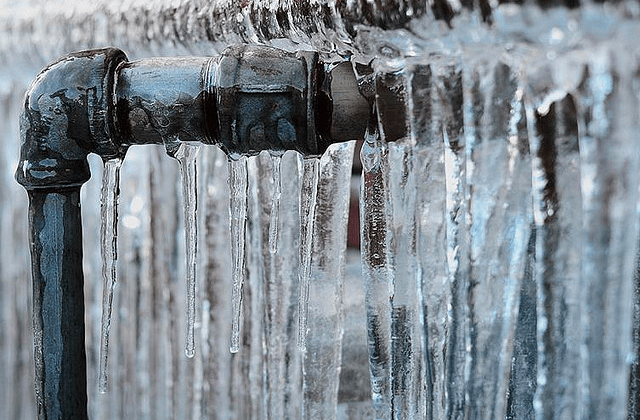We have encountered this great article involving How to Prevent Your Pipes From Freezing down the page on the internet and reckoned it made perfect sense to talk about it with you on my blog.

Winter can damage your plumbing, specifically by freezing pipes. Right here's how to prevent it from happening and what to do if it does.
Introduction
As temperature levels decline, the risk of frozen pipes rises, possibly causing costly repairs and water damage. Recognizing how to prevent frozen pipes is important for property owners in chilly environments.
Comprehending Icy Pipes
What creates pipes to ice up?
Pipelines freeze when exposed to temperatures listed below 32 ° F (0 ° C) for prolonged periods. As water inside the pipes freezes, it broadens, putting pressure on the pipe walls and potentially triggering them to burst.
Dangers and damages
Icy pipelines can lead to water system disruptions, home damage, and costly repair work. Ruptured pipes can flood homes and trigger extensive structural damage.
Indications of Frozen Water Lines
Identifying icy pipes early can stop them from bursting.
Exactly how to determine icy pipes
Search for decreased water flow from faucets, uncommon smells or sounds from pipelines, and visible frost on revealed pipes.
Prevention Tips
Insulating susceptible pipes
Wrap pipes in insulation sleeves or utilize warmth tape to shield them from freezing temperature levels. Concentrate on pipes in unheated or external locations of the home.
Home heating methods
Maintain indoor areas properly heated, especially locations with pipes. Open up cupboard doors to enable cozy air to circulate around pipelines under sinks.
Shielding Outside Pipes
Garden hose pipes and outside faucets
Separate and drain yard hose pipes before winter. Set up frost-proof spigots or cover exterior faucets with protected caps.
What to Do If Your Pipes Freeze
Immediate actions to take
If you presume frozen pipes, maintain taps open up to alleviate stress as the ice thaws. Utilize a hairdryer or towels soaked in warm water to thaw pipelines gradually.
Long-Term Solutions
Architectural changes
Consider rerouting pipes away from exterior wall surfaces or unheated areas. Add added insulation to attic rooms, basements, and crawl spaces.
Updating insulation
Buy top quality insulation for pipes, attic rooms, and walls. Proper insulation assists preserve constant temperature levels and decreases the risk of frozen pipes.
Final thought
Stopping frozen pipes needs positive procedures and fast feedbacks. By recognizing the causes, signs, and safety nets, property owners can shield their pipes throughout winter.
Helpful Tips to Prevent Frozen Pipes this Winter
UNDERSTANDING THE BASICS: WHY PIPES FREEZE AND WHY IT’S A PROBLEM
Water freezing inside pipes is common during the winter months, but understanding why pipes freeze, and the potential problems it can cause is crucial in preventing such incidents. This section will delve into the basics of why pipes freeze and the associated problems that may arise.
THE SCIENCE BEHIND FROZEN PIPES
When water reaches freezing temperatures, it undergoes a physical transformation and solidifies into ice. This expansion of water as it freezes is the primary reason pipes can burst. As the water inside the pipe freezes, it expands, creating immense pressure on the walls. If the pressure becomes too great, the pipe can crack or rupture, leading to leaks and water damage.
FACTORS THAT CONTRIBUTE TO PIPE FREEZING
Low Temperatures: Extremely cold weather, especially below freezing, increases the risk of pipes freezing. Uninsulated or Poorly Insulated Pipes: Pipes located in unheated areas, such as basements, crawl spaces, or attics, are more prone to freezing. Insufficient insulation or lack of insulation altogether exacerbates the problem. Exterior Wall Exposure: Pipes running along exterior walls are susceptible to freezing as they encounter colder temperatures outside. Lack of Heating or Temperature Regulation: Inadequate heating or inconsistent temperature control in your home can contribute to frozen pipes. PROBLEMS CAUSED BY FROZEN PIPES
- Pipe Bursting: As mentioned earlier, the expansion of water as it freezes can cause pipes to burst, resulting in significant water damage.
- Water Damage: When pipes burst, it can lead to flooding and water damage to your property, including walls, ceilings, flooring, and personal belongings.
- Structural Damage: Prolonged exposure to water from burst pipes can compromise the structural integrity of your home, leading to costly repairs.
- Mold and Mildew Growth: Excess moisture from water damage can create a favorable environment for mold and mildew growth, posing health risks to occupants.
- Disrupted Water Supply: Frozen pipes can also result in a complete or partial loss of water supply until the issue is resolved.
WHY CERTAIN PIPES ARE MORE PRONE TO FREEZING
- Location: Pipes located in unheated or poorly insulated areas, such as basements, crawl spaces, attics, or exterior walls, are at higher risk of freezing.
- Exterior Pipes: Outdoor pipes, such as those used for irrigation or exposed plumbing, are particularly vulnerable to freezing as they are directly exposed to the elements.
- Supply Lines: Pipes that carry water from the main water supply into your home, including the main water line, are critical to protect as freezing in these lines can affect your entire plumbing system.
- Underground Pipes: Pipes buried underground, such as those connected to sprinkler systems or outdoor faucets, can be susceptible to freezing if not properly insulated.
https://busybusy.com/blog/helpful-tips-to-prevent-frozen-pipes-this-winter/

As a keen reader about How to prepare your home plumbing for winter weather, I think sharing that piece of content was a good thing. Do you know someone else who is excited by the topic? Feel free to promote it. Kudos for being here. Return soon.
Call Today